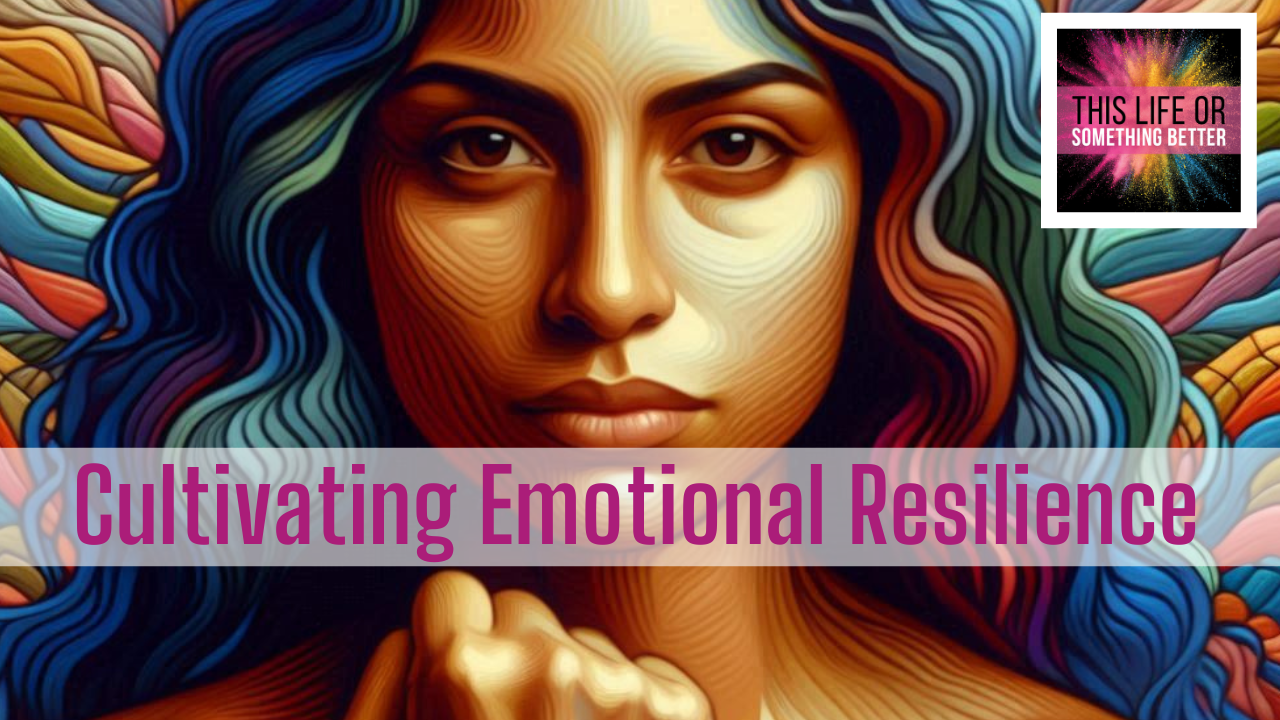In today’s fast-paced world, emotional resilience is more important than ever. In my podcast, “This Life or Something Better,” I talk about how cultivating emotional resilience is essential for navigating life’s highs and lows with strength and grace. Here are some key insights from the episode, providing practical tools to enhance your emotional resilience.
What is Emotional Resilience?
Emotional resilience is the ability to bounce back from adversity, trauma, and stress. It involves adapting to reality, recognizing growth opportunities, and developing a hopeful outlook on life’s challenges.
Why Self-Awareness Matters
Self-awareness is the cornerstone of emotional resilience. Recognizing your stress triggers and checking in with your emotions throughout the day can prevent negative emotions from clouding your judgment. Regularly pausing to assess your feelings allows you to respond to situations thoughtfully rather than reactively.
Tips for Improving Self-Awareness
*Daily Check-Ins: Set aside time each day to reflect on your emotional state.
*Mindfulness Practices: Engage in activities like breath work, meditation, or yoga to stay present.
The Role of a Support System
Having a support system can provide emotional relief and is crucial for building emotional resilience. Remember, support doesn’t always mean solving problems; sometimes, it’s just about being there to listen.
Embrace Adaptability
Life is unpredictable. Embracing adaptability and accepting reality as it is can significantly ease life stresses. When faced with unexpected situations, adapting rather than resisting can make a significant difference.
The Power of Optimism
Optimism isn’t just about seeing the glass half full; it’s about maintaining hope and looking at life with a positive outlook. Optimism can significantly impact your ability to remain resilient in the face of challenges.
Strategies for Self-Regulation
Self-regulation is key to managing emotions effectively. Transitioning from a reactive to a restorative nervous system state can help maintain emotional stability.
Techniques for Self-Regulation
*Breathing Exercises: Simple breathing techniques can calm your nervous system.
*Self-Affirmations: Positive affirmations can bolster your emotional strength.
Problem-Solving Skills
Developing problem-solving skills and utilizing available resources can enhance your resilience. These skills enable you to face challenges head-on with a structured approach.
Learning from Setbacks
Setbacks and emotional triggers are opportunities for growth. Acknowledge and address these triggers, understand the lessons behind them, and work towards building a new, more resilient self.
Building emotional resilience is a continuous journey. By incorporating self-awareness, adaptability, optimism, self-regulation, and robust problem-solving skills into your daily life, you can navigate the ups and downs of life more effectively.
Don’t miss episode 65 of “This Life or Something Better” for a deeper dive into emotional resilience. Share the wisdom with friends and family and join our Facebook community for further support and learning opportunities.
By embracing these practices, you’re not just surviving – you’re thriving.
For more insightful episodes and tips on personal growth, listen to “This Life or Something Better” on Spotify and Apple Podcasts and start your journey towards a stronger, more resilient you!
